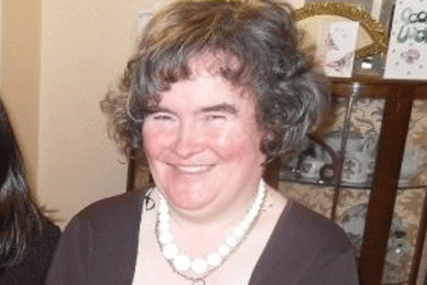
Speaking at Media360 today (15 May), Howell cited the unprecedented global coverage of Scottish singing sensation Boyle as an example of how television remained an "agenda-setting" medium in the digital age, while rubbishing reports ITV had lost up to £150m in missed advertising opportunities.
He called suggestions that ITV had failed to capitalise on Boyle-mania as "ill-informed rubbish" and added: "On ITV.com, Susan Boyle's audition clip has had 1.5 million fully monetised views to date.
"Video views on ITV.com are up 1,250% year on year, and it's worth noting too that initial viewing of Susan in the UK on ITV.com outstripped views on YouTube, before she became a global phenomenon."
The commercial chief told more than 160 media delegates that 80% of YouTube's traffic came from outside the UK, where the ownership of rights and interests of producers "changes significantly".
Howell said: "Reaching an agreement that suits all partners, all of whom have different interests and expectations, becomes highly complex.
"We're delighted we quickly reached a deal that meets the expectations of all interested parties, which will enable us to deliver additional revenue streams as well as those from ITV.com, as the series builds. In essence, ITV.com delivers the revenue, and YouTube the free fame."
Howell also pointed to "a myriad" of other places where people could view and listen to Boyle, including national newspapers, Twitter and Facebook - where Britain's Got Talent currently has 288,799 friends - to demonstrate the central position TV still sits.
He went on: "The key point is that the catalyst for this entire conversation globally, for this huge global share experienced, was broadcast television. From the first episode of BGT on 11 April [watched simultaneously by 14 million people], nothing else would have happened without it."
Howell recognised his comments come during a "turbulent time" for British TV, and when ITV's own advertising revenue was down 15% in the year to date. But he blamed "a perfect storm" of increased competition, declining ad revenue and "onerous and outdated industry regulation" (CRR and product placement), said to have been "designed for a different era".
Yet, he noted TV continued to dominate the time people spend on media in the UK and that its share was still increasing - up half an hour on average in the past two years.
Howell also reminded the roomful of media planners and buyers that commercial TV currently represents great value, with its cost per thousand having dropped continuously over the past decade, and now equivalent to 20 years ago in real terms.
Far from taking away from television, new social media and platforms such as video-on -demand were recognised as serving to stimulate TV viewing.
According to the broadcaster's latest research, 97% of ITV's audience - 33 million individuals - were now believed to access ITV content from at least three different platforms, with each having different expectations.
Howell also wanted to burst "the biggest myth and misunderstanding of all" - that young people do not watch television: "That is bollocks. It is just not true."
The 15 to 34-year-old demographic was said to be spending significant parts of the media day with TV (47%), even when compared to the internet (26%), and added that for this generation, the two were "not mutually exclusive".
He urged any would-be advertiser to look beyond the "hype and hyperbole" and see that "television companies continue to build brands, drive response and deliver competitive return on investment, unlike any other medium".




_1.jpg)
.jpg)
